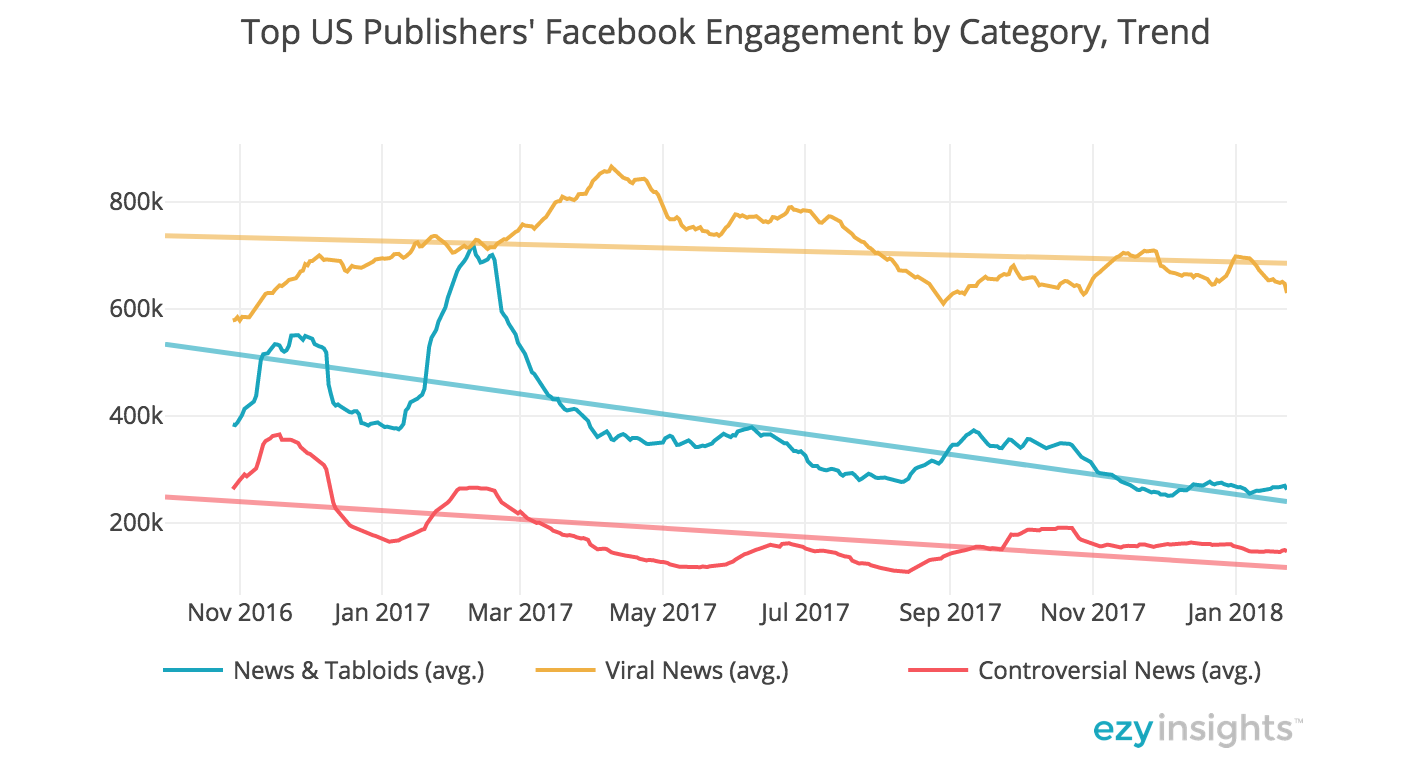Recently announced changes to the News Feed algorithm are causing a lot of discussion and uncertainty among publishers. Facebook has not provided specifics on how or when the changes would be implemented, and the majority of the discussion is driven by speculation and fear rather than facts.
Based on our data, although there are many areas of concern (as always), there is no reason to panic.
Facebook has announced similar changes to News Feed in June 2016 – prioritising posts by friends. We noticed then a U-shaped curve: some publishers’ engagement went slightly down but then Brexit & US Presidential elections happened and the same publisher’s engagement went back up.
We analysed engagement trends for publishers in the US, UK, continental Europe, and the Nordics throughout 2017, which revealed that the overall engagement for news publishers was drastically lower in the second half of 2017, compared to the first half.
A note on data
To understand Facebook engagement trends, we analysed how much readers engaged with (i.e. liked, hated, loved or shared and commented) posts by top publishers in each category. Publishers that made it to the list had Facebook pages with the biggest volume of engagement on their posts as of December 2017.
For news and tabloids, we analysed top 10 publishers in each country, and for viral and controversial news, top 5 publishers.
We analysed 7,695,824,159 (7.7 billion) Facebook interactions from December 2016 to 22nd January 2018.
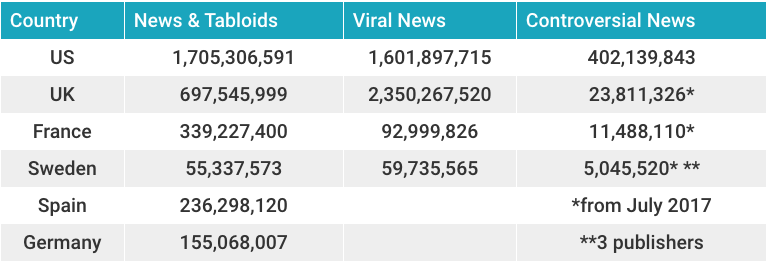
Publishers’ engagement trends
Here’s what Facebook engagement looked like for publishers in 2017.
United States
United Kingdom
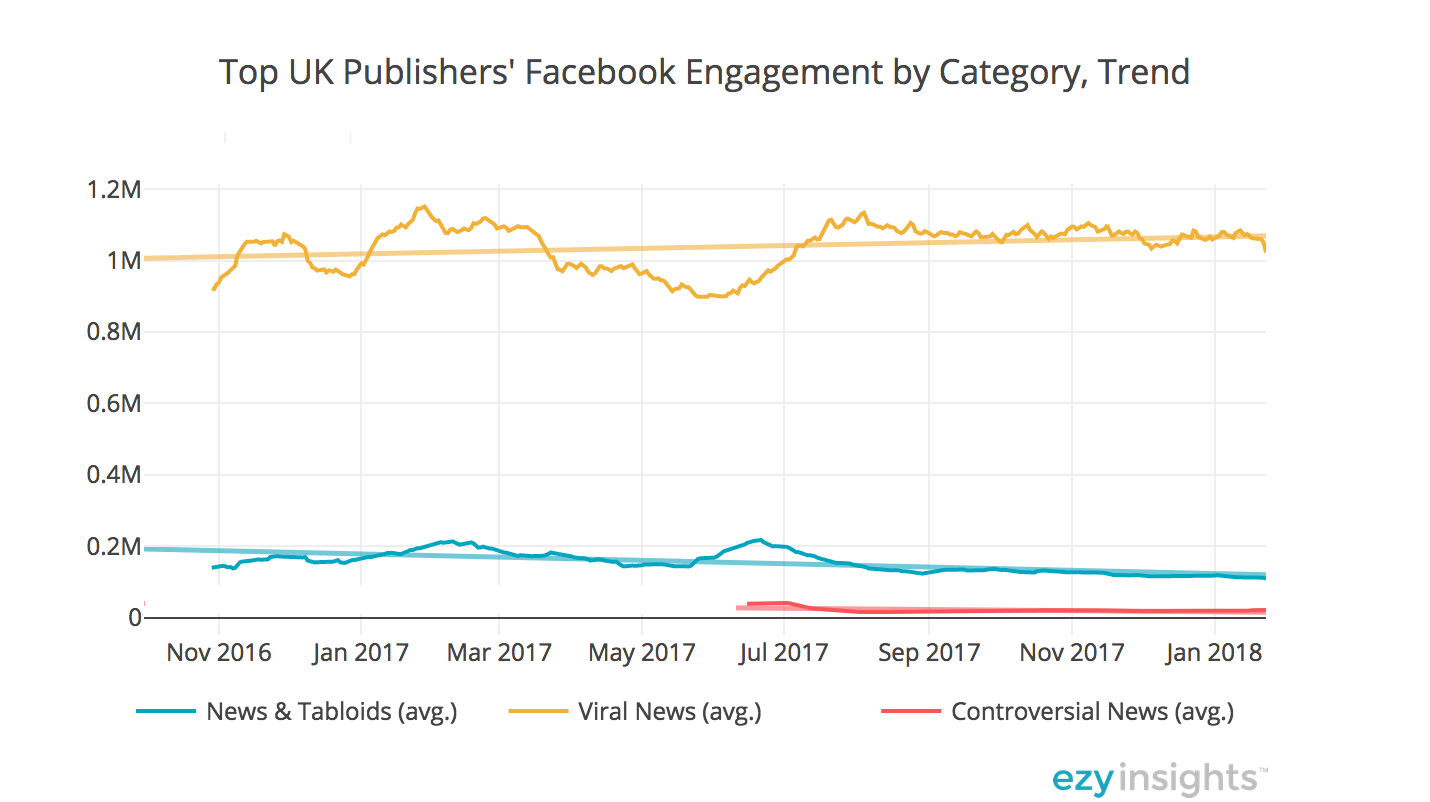
France
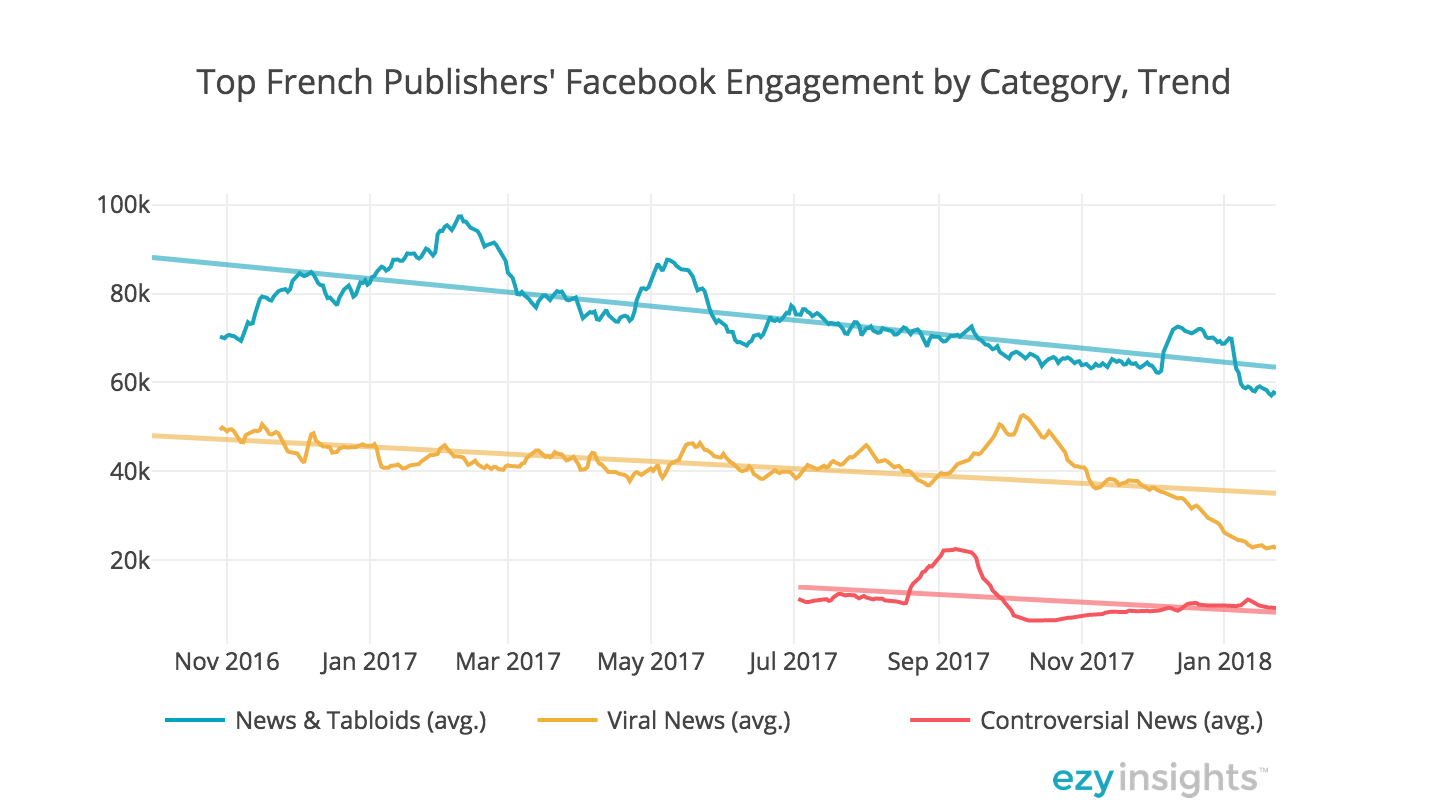
Sweden
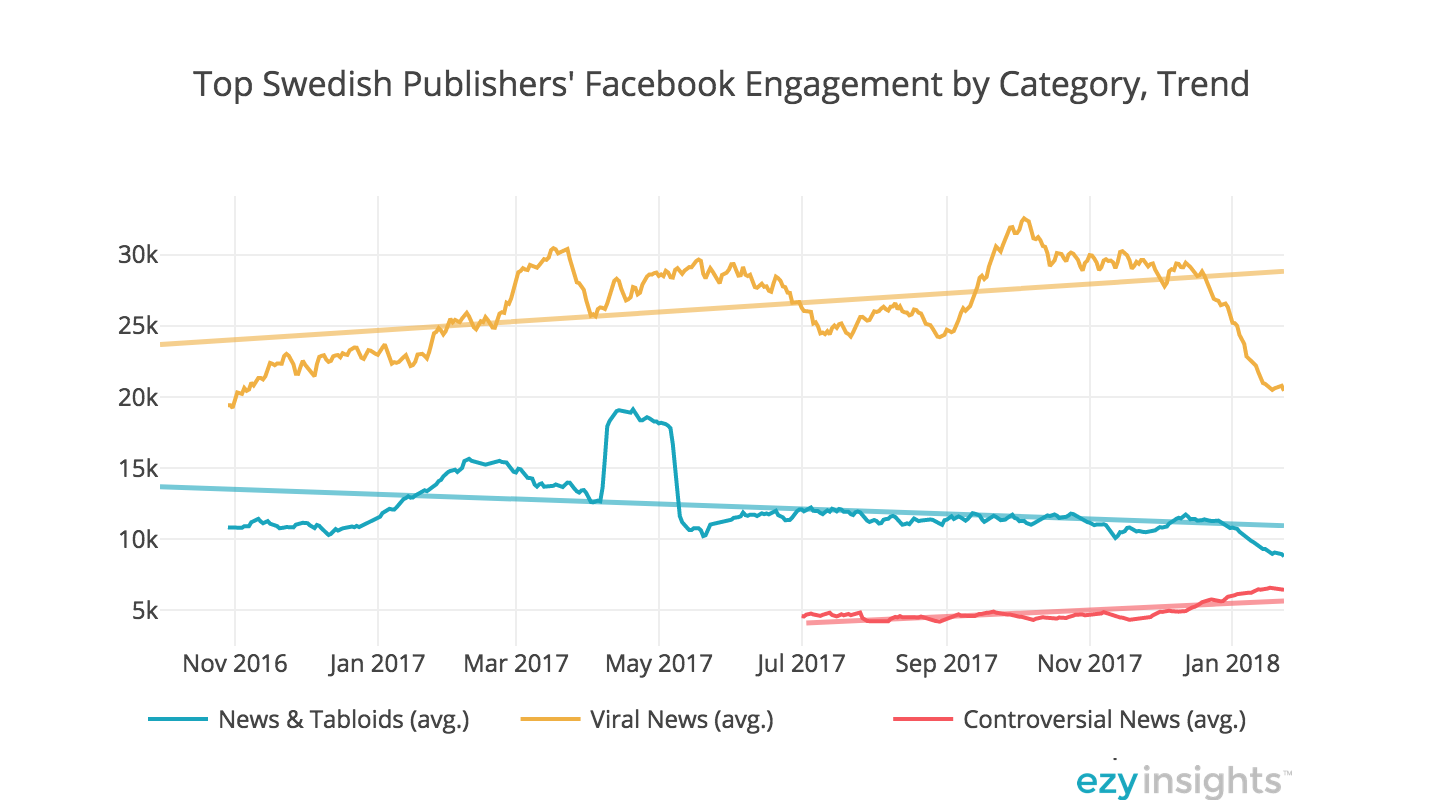
Spain
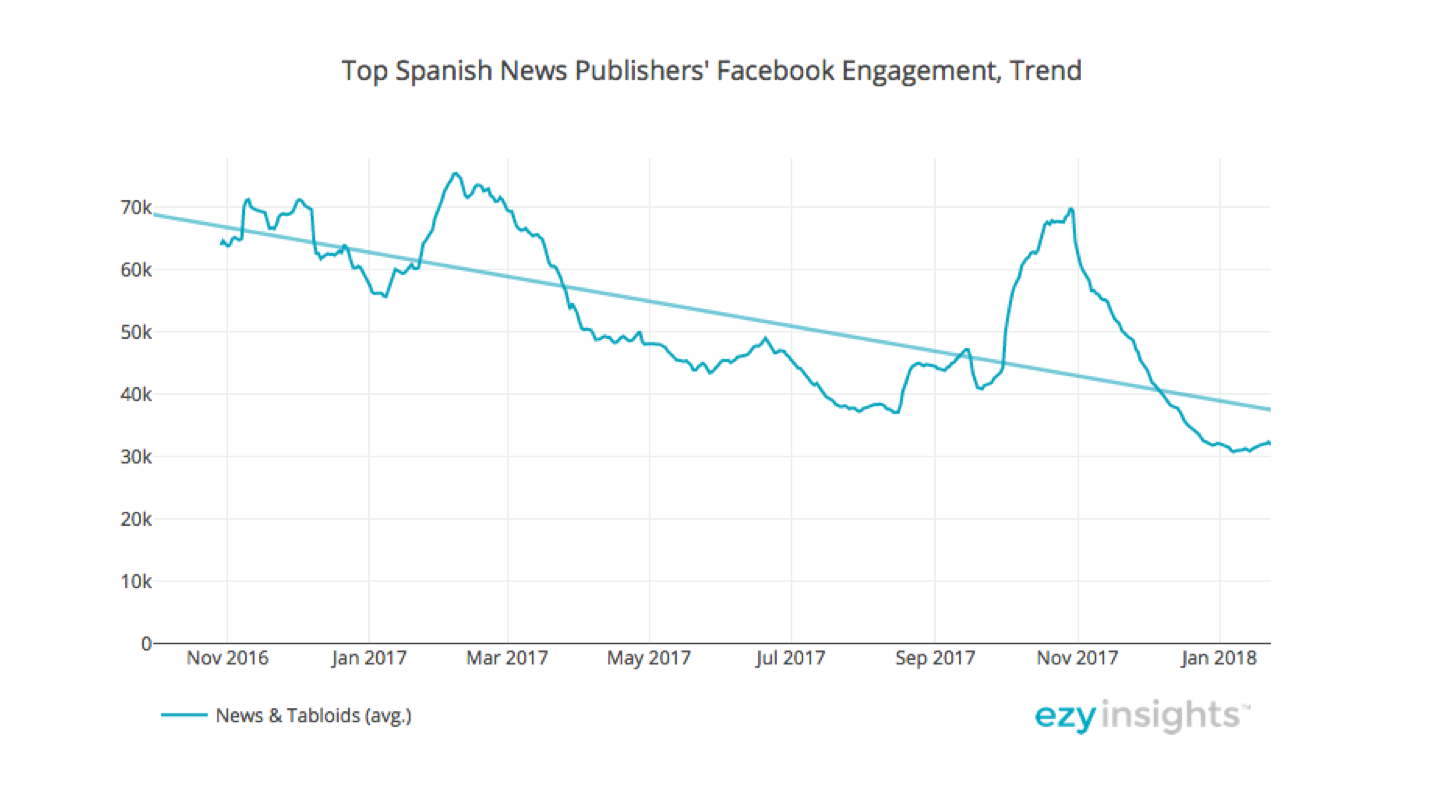
Germany
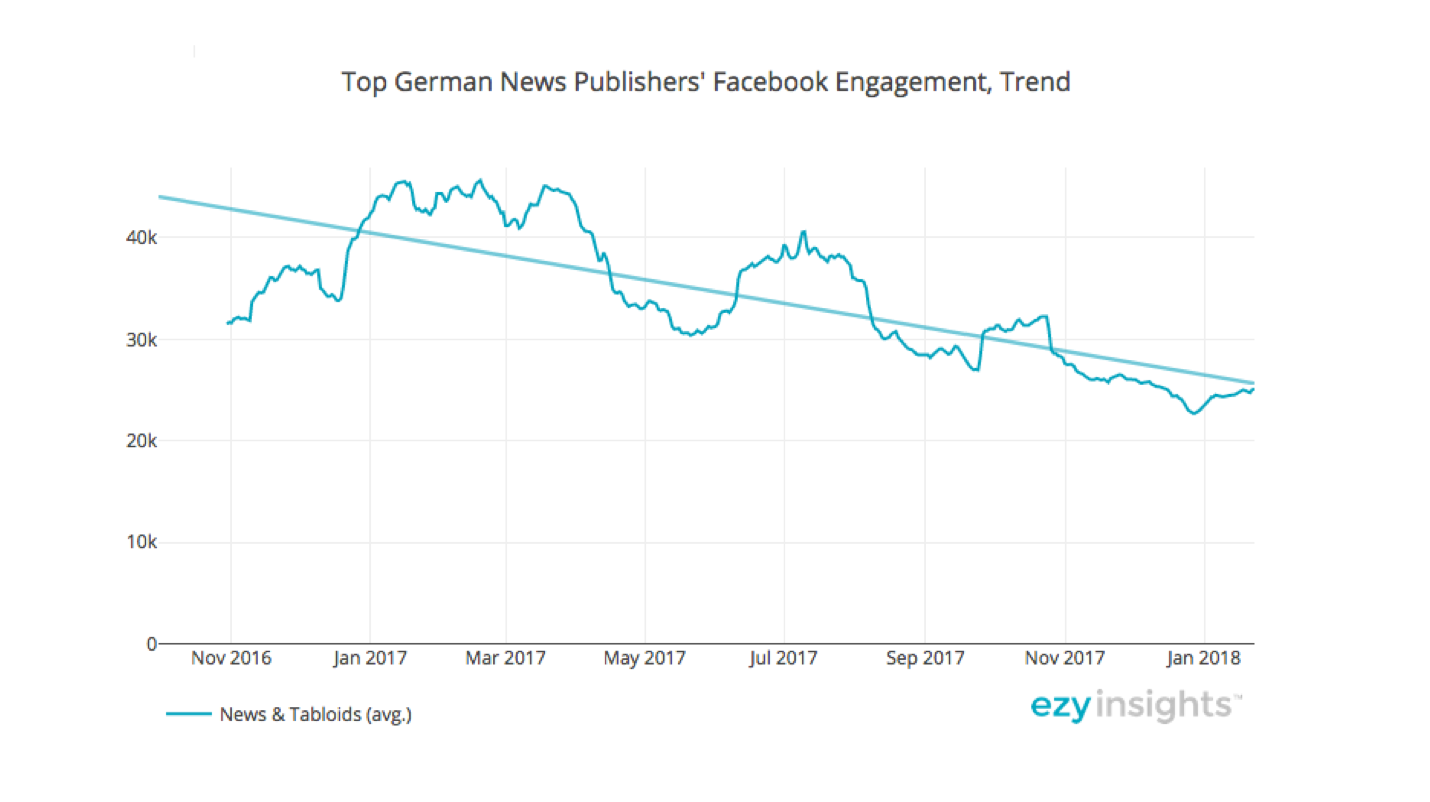
News decline, virals steady, controversials grow
When we look at the overall decrease in engagement volumes, it’s possible that Facebook already made changes to the News Feed algorithm last year, and only announced it now.
It’s also important to remember that news-wise, the second half of 2017 has been calmer than the first half, with the exception of the #MeToo movement, which continues to have ripple effects across the world.
In the first half 2017, media was full of reports about the start of Trump’s presidency, fake news, Russian meddling in the US elections, and natural disasters like hurricanes. In Europe, we’ve seen news around Brexit, elections in France, The Netherlands, Germany, and other countries; Grenfell tower, the Stockholm terrorist attack…
All of these events drove a lot of engagement, and we haven’t seen as many big news events in the second half of 2017. That could be another reason for the overall lower volume of Facebook engagement for news publishers towards the end of last year.
Viral publishers’ engagement has remained steady throughout 2017, which is to be expected as their content is designed to be shared, liked, and commented, and the News Feed algorithm will continue rewarding that behaviour.
Worryingly, we’ve seen controversial publishers’ engagement rising throughout 2017. Their stories are designed to evoke strong emotions which drive engagement and debate, things that Facebook announced as important for News Feed visibility in the future. However, recently Mark Zuckerberg added that Facebook will give more weight to “reliable” news sources, as marked by the users. This might not have a big effect on controversial publishers, since people who regularly engage with these pages are likely to mark them as reliable news sources.
What does this all mean for publishers in 2018?
- Web shares are growing in importance. Make sure it’s easy and compelling for readers of your website or app to share your stories.
- Engagement has always been important and that’s clearly not changing. While some publishers are struggling to convert engagement into traffic or revenue, publishers who’ve invested in this area already have stable business models and revenue streams. These publishers will focus on maximising the potential of their Facebook presence as usual. Publishers who haven’t invested in this area are likely to suffer, though they’ve probably been lagging behind in terms of social traffic already in 2017.
- Keep calm and carry on. With 2 billion active users, Facebook is (still) an important source of referral traffic for publishers. Whether your business relies on traffic, subscriptions, or additional streams like events, reaching your audience through Facebook is still possible and free.
- Look at the data. Uncertainty over News Feed changes causes fear and that uncertainty is not likely to go away as Facebook will continue experimenting with their algorithm. Publishers need to have a strong analytics team and reliable tools to look at their own as well as their competitors’ data to understand what’s really going on. That way, they can respond to the real effects of any changes and not the imagined scenarios.

